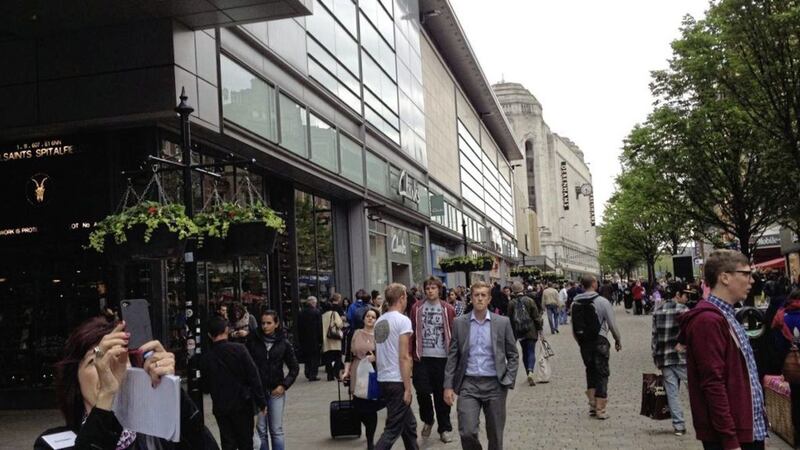NOBODY has had any trouble interpreting a Derry-Strabane city deal in grandiose constitutional terms. The delay in such a deal behind Belfast, confirmed by chancellor Philip Hammond this week, has been proclaimed as the usual discrimination against Northern Ireland’s second city, fitting into dark patterns of historic sectarianism.
In reality, the delay is because Derry and Strabane council was too wrapped up in an argument over what kind of deal it wanted to commence the official application process.
That argument took place mainly among nationalists and was either highly symbolic or absurdly semantic, depending on whether you prefer your Swiftian egg from the big or little end.
As a rough guide, Sinn Féin insisted any city deal had to incorporate formal cross-border cooperation, although there is no mechanism for this in a UK funding programme without an Irish equivalent. The SDLP realised a city deal could be UK-only and still complement cross-border cooperation, but was concerned it would be crucified for saying so.
This debate has not so much concluded as paused for breath. Great ideological disputations over widening the road to Letterkenny can be expected in the coming months and years.
All of which makes it doubly strange that the Belfast city deal’s implications have attracted so little comment.
The six councils comprising the successful bid make up a ‘Belfast City Region’ encompassing almost the entire eastern half of Northern Ireland, from Ballymena to Newry.
With its new powers, structures and budget, especially in the absence of Stormont, is this an embryonic ‘city statelet’?
Perhaps that question is being blanked because it evokes repartition - a concept rejected across the political spectrum as dangerous and unviable.
However, the Belfast City Region can never be a unionist territory - Protestants were 51 per cent of its population at the 2011 census and hence may be in the minority already.
The possibility opened up by the idea of the city region is of a distinct northern political structure, capable of surviving and even thriving into a united Ireland, without having to be a unionist and nationalist construct. It might retain unionist versus nationalist politics but that would not be the point of its existence - it would primarily be an urban and civic economic project, with the potential to develop a new kind of politics around that goal.
If that sounds hopelessly naïve it is still more realistic that the Good Friday Agreement’s mechanism for unification, which is of Northern Ireland surviving in its geographic and institutional entirety, with sovereignty simply transferred from London to Dublin.
Recent statements from the Irish government and Sinn Féin, as well as significant rulings from the Northern Ireland judiciary, indicate this vision is taken seriously, yet it is clearly as dangerous and unviable as notions of repartition.
In the event of a border poll for unification, Northern Ireland will by definition have a nationalist majority. Why would this majority persist with a state that traps them in limbo just short of their goal? Would even unionists see the point of continuing to live under Stormont’s mutual vetoes? At best, Northern Ireland would evaporate, leaving squabbling patches of local government behind.
It is irresponsible in the extreme to provide no alternative framework.
City regions, centred around Belfast and Derry, promise a new political focus with at least the prospect of moving beyond what flags to fly from official buildings. Cities are natural units of government and can command a civic allegiance across community lines.
Irish unification would raise profound development questions for Belfast in particular, as it moved from being a devolved capital to becoming a second city - in truth, the only second city an Irish state would ever have known.
Some economists have advocated an east coast economic corridor post-unification, linking Belfast and Dublin. Such policies can easily suck everything towards the largest centre, as can be seen at Dublin airport.
The Irish government seems inclined to take the opposite approach. Its 2040 regional development plan, published this year, proposes forcing wealth and power out of Dublin, constraining the capital if necessary. Ministers discussed building a brand new city in the midlands to accommodate population growth, as well as the prospect of Belfast fulfilling that role.
Why could a new politics not build up around these issues, or be encouraged to develop?
For a brief few decades a century ago, the economy of Belfast made the creation of Northern Ireland imaginable, then possible.
There is no good reason why it cannot drive change again.
newton@irishnews.com









